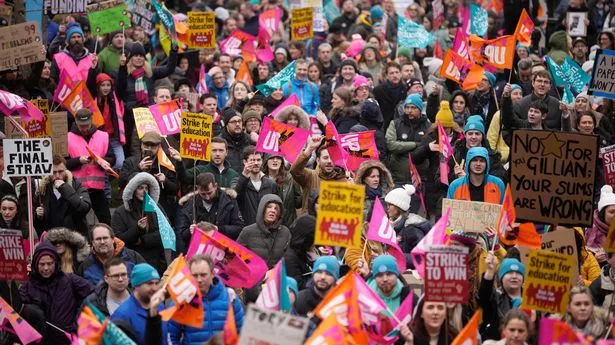The above-inflation deals could require the government to find an extra £10 billion in the public sector.
An independent pay review organization representing NHS staff and teachers has reportedly suggested an above-inflation pay rise that, according to a renowned economist, may cost the government up to £10 billion.
According to the Times, the organizations will recommend a 5.5% rise from the 514,000 teachers and almost 1.3 million NHS staff they represent, which is significantly higher than the figure the government thought to have planned. Such a move would challenge Rachel Reeves’ fiscally regulated treasury early.
Paul Johnson, the director of the Institute for Fiscal Studies, said he was not terribly surprised by the figure, which would be consistent with the wage increase across the economy and cost an additional £3 billion for schools and the NHS alone.
Johnson told the BBC’s Today’s program, “In terms of the cost, there isn’t a specific number that is budgeted for schools, it’s probably 1% or 2%, it’s certainly nothing like 5.5%.”
“So, we’d certainly be looking at at least an additional £1bn on schools’ costs relative to what they’re currently expecting, and a number at least double that across the NHS if the proposals for the NHS are similar, which it appears that they might be.”
Johnson added that if the 5.5% figure is repeated across the public sector, the government may need an additional £10 billion.
A higher-than-expected pay raise might significantly challenge Reeves’ first budget, which is scheduled for autumn after she promised to control borrowing and cancel the tax rise during her election campaign.
Schools and hospitals are unlikely to be able to cover a wage increase with their current budgets without making cuts elsewhere.
When asked where the money could come from, Johnson replied, “The answer is the same as the answer always is: where can the money come from?
“It can only come from higher borrowing than they’re planning, higher taxes than they’re planning or cuts in spending elsewhere. There is no fourth option here.”
Failure to fulfill the pay review organizations’ recommendations, which are expected to be announced this month, would result in a conflict with trade unions representing the 6 million public sector workers.
The National Education Union’s general secretary, Daniel Kebede, has cautioned that ignoring the pay-review bodies’ recommendations could lead to strike action.
Bridget Philipson, the new education secretary, had “worked hard to restore relations with the teaching professions; he said: “It would be highly problematic for the Treasury to intervene then and then not implement a 5.5% pay award.”
“We absolutely would want to avoid strike action, but that would almost seem inevitable if the Treasury were to make such an intervention.”
According to a government spokesperson, “We value the vital contribution the almost 6 million public sector workers make to our country.”
“The pay review process is ongoing, and no final decisions have been made. We will update in due course; however, we are under no illusions about the scale of the fiscal inheritance we face.”














